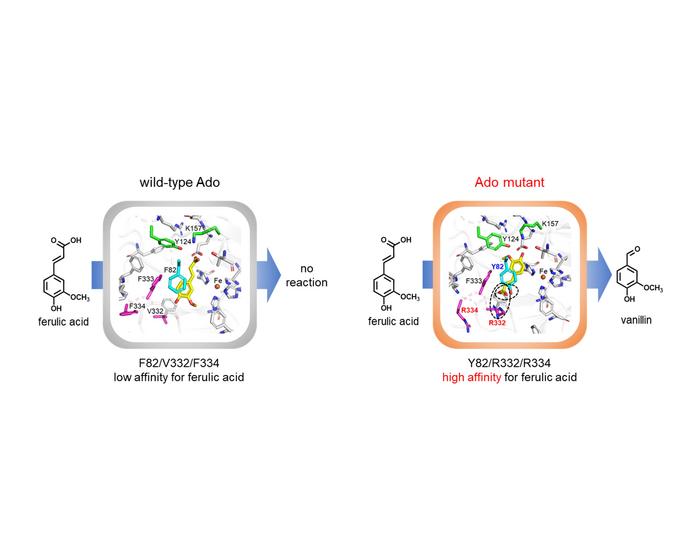Food Agriculture
Engineered Enzyme Produces Vanilla from Plant Waste
Tokyo University of Science researchers have developed an enzyme that converts plant waste into natural vanillin in one step, potentially revolutionizing the flavor industry
DALL-E
In a breakthrough that could reshape the flavor industry, researchers at Tokyo University of Science have bioengineered an enzyme capable of converting plant waste into vanillin—the beloved compound responsible for vanilla's iconic aroma—in a single, sustainable step.

The Vanilla Crisis
Natural vanillin, sourced from vanilla orchids, is increasingly scarce and expensive due to limited agricultural yields and climatic constraints. This scarcity drives up prices, even as demand for natural vanilla extract soars, since synthetic alternatives just don't measure up in flavor.
Engineering a Solution
Professor Toshiki Furuya and his team, including graduate students Shizuka Fujimaki and Satsuki Sakamoto, tackled this issue head-on. By genetically modifying the enzyme "Ado" to interact with ferulic acid—a compound abundantly available in agricultural waste like rice and wheat bran—they created a process that turns ferulic acid directly into vanillin. "Ferulic acid, the raw material, is a compound that can be obtained in abundance from agricultural waste... [it] provides a simple and environmentally friendly method for producing flavor compounds,” explains Prof. Furuya.
Scientific Innovation
The research, detailed in the journal Applied and Environmental Microbiology, involved altering the enzyme's amino acid structure to facilitate its interaction with ferulic acid. After numerous trials, the team identified a mutant enzyme variant that could produce vanillin efficiently without requiring any cofactors, making the process not only simpler but also more scalable.
Future Implications
This new method has the potential to revolutionize the production of natural vanillin, making it more accessible and affordable. Prof. Furuya envisions broader applications, highlighting the sustainability of deriving valuable compounds from renewable resources. "Harnessing the potential of microorganisms and enzymes... offers a sustainable approach to minimizing environmental footprint," he notes.


















